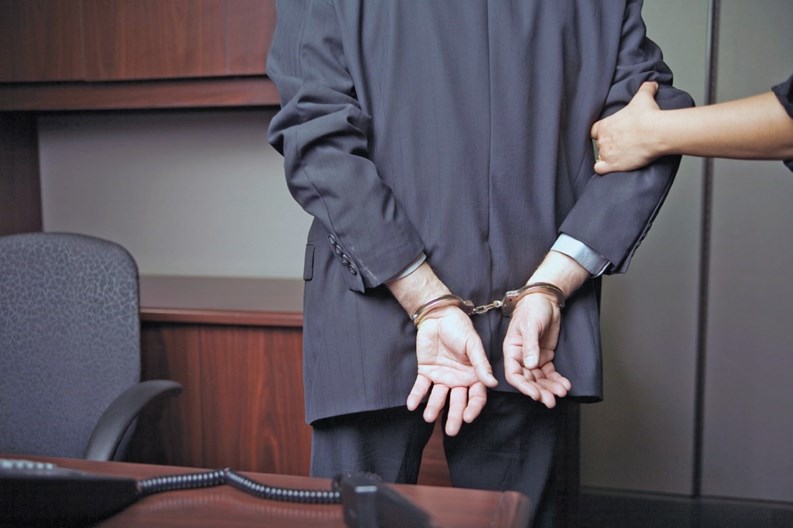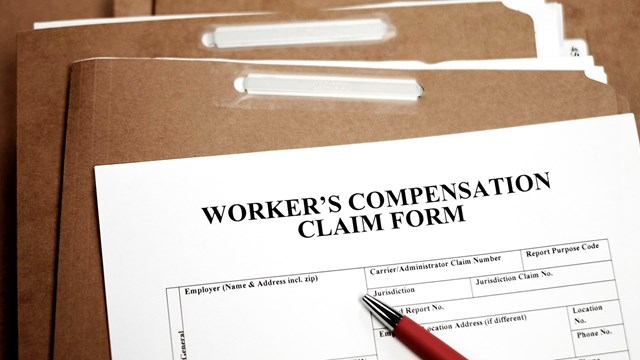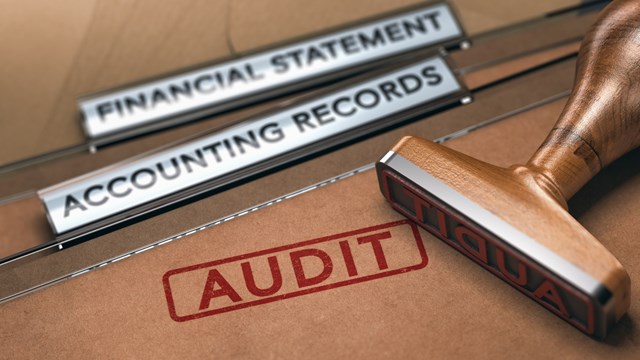Few things can be as upsetting as discovering that the funds that fuel a co-op or condo have been mishandled—or worse yet, stolen. For residents, fraud undermines their sense of trust in the men and women who oversee and manage the place they call home. For managers and board members, it can breach the trust that exists between each other, wreaking havoc not only on the bottom line but on the very fiber of the organization itself.
In these days of Bernie Madoff pyramid schemes and the tumult on Wall Street, knowing how to detect and prevent fraud has become even more important to unit owners, managers and boards. Responsibility, transparency and accountability have become the watchwords of financial management, and it’s a sensibility that has made its way to the world of residential housing. “In a difficult economy, you have to watch your assets,” says Stephen Beer, CPA, of Czarnowski & Beer LLP in Manhattan.
It’s Happened Before…
For the co-op and condo industry, the 1990s saw major scandals surrounding disreputable property managers and vendors involved in kick-back activities and other fraudulent activities, such as creating bank accounts in the manager's name, and not that of the building, so that deposits were siphoned off to the individual rather than the community.
That kind of activity and the prosecutions that followed it put boards and managers on alert. Other headline-grabbing deceits in other industries (such as the Enron scandal) also prompted new safeguards and activities, including the Federal Accounting Standards Board. Despite the changes that have occurred, however, industry experts agree that vigilance is required at all times when it comes to the financial well-being of co-ops, condos and HOAs.
Issues at Hand
There are two types of fraud, says Mindy Eisenberg Stark, CPA, CFE, of Scarsdale, New York . There is “on the book” fraud which involves activities such as commingling bank accounts, creating fictitious vendors, borrowing funds and creating fictitious employees.
By contrast, “off the book” fraud usually encompasses kick-back schemes, which Beer describes as “money given to the superintendent or property manager in return for steering a building to a certain vendor.”
Other fraudulent activities include using credit cards and petty cash for personal use or buying products or services for themselves and disguising it as co-op or condo business, says Gary Rosen, CPA, CFE of Wilkin & Guttenplan PC in East Brunswick, New Jersey. Not every problem on the books is fraudulent, though. Everyone and anyone can make a mistake. Rosen has heard of instances where management accidentally paid a vendor’s statement as well as an invoice, or paid a vendor for 10 months on a nine month contract.
The difference between fraud and mistakes is that “people go to jail for one and not the other,” says Beer, adding that it all boils down to intention. “Mismanagement can happen,” he says. “A person can be overworked and things happen, but you want to eliminate that by working with a company that’s reputable.”
Two recent cases in the news highlight how the tough economy has made cooperatives and condominiums more susceptible to theft. In one case a Suffern, New York man serving as his building's treasurer was arrested for allegedly stealing more than $130,000 from the condo association. The district attorney's office alleges that between January 2004 and November 2009, the treasurer stole $130,345 from the Sussex Condominium III, writing 47 checks from the association’s checking account payable to himself and relatives, and falsifying information in his monthly financial statements to the board to cover up the theft. If convicted, he could face five to 15 years in state prison.
The second case happened in Timuquana Village Condominium Association in Jacksonville, Florida, where the now-former manager pleaded guilty to embezzling nearly $167,000 from the association's bank account over a seven-year period. An audit revealed that she wrote checks to herself from the association’s account for personal items between 2002 and 2009, when she resigned. The manager paid the money back, but was sentenced under a plea agreement to community service and 10 days in jail to be served on weekends.
If fraud has occurred or is taking place, there are usually tell-tale signs. “You might have vendors complaining that they’re not getting paid when the board thinks they are,” says Stark. The board not getting financial documents when they request them could be another sign. Seeing a rise in expenses without apparent cause also can hint at trouble. And of course, there’s the biggest red flag of all: running out of money.
Stopping Before it Starts
With fraud, by the time money has been lost, the proverbial horse is well out of the barn. The best way to prevent it is to stop it before it starts. “There should be natural checks and balances in place,” says Margie Russell, executive director of the New York Association of Realty Managers (NYARM). “There should be roadblocks in the way. Make it not that simple so that the person thinking of doing the deed is going to know it won’t be that easy.”
One way of creating those checks and balances is to have a thorough review process when it comes to anything and everything related to the financial aspects of the building.
“Reports should be reviewed constantly,” Russell says. Managers and staff should be examining the books in search of errors, “and when the board looks at the numbers, they should be checking to see if everything looks kosher,” Russell says. “If everyone’s just looking for someone else’s signature before they sign off, it’s not going to work.”
Stark agrees. “You have to have oversight and checks and balances,” she says. “Information is very important to have. People need to spend time and look at the management report.” And that report should be comprehensive, including actual bills and bank statements, not simply the documents generated by management.
“Look at budget versus actual,” says Rosen. “Or actual versus actual for every year. Do a trend analysis. Pay attention to the dollars being spent. Ask what bills are outstanding to vendors. Be aware of what’s going on around you as you pay bills. Budget versus actual does play a role.”
The seemingly little things can make all the difference. For example, have checks reviewed by two people, Russell says.
It’s important, too, Stark says, to make sure that no single individual holds the key to all the financial data. “People become too trusting and sometimes one person becomes too powerful,” she says. In co-ops and condos where millions of dollars may be at stake, the risk is too high to simply hand over control to one individual.
“Ask common sense questions,” says Beer. “Generally, the board that doesn’t ask questions or review reports is the one that gets in trouble.”
Rosen agrees. “These are the board’s books and records ,” he says. “They have a fiduciary responsibility to their building.”
It’s especially important for the board’s treasurer to be alert and on task at all times. Protecting the assets of the co-op or condo is the responsibility of the whole board, but often, the treasurer is the one with the title. He or she needs to be vocal and engaged.
Hand in hand with asking questions comes the need to go through proper channels. When hiring a vendor, it’s imperative to get and see proposals from a variety of vendors and not rely simply on the property manager handing in a report. The board should know where those cost estimates came from and who supplied them.
It’s also important, Stark says, to make sure that accounts are never co-mingled with anyone else’s money. Some management companies may maintain large holdings with funds from several buildings in one account. That could be a dangerous situation, Stark contends, and should be avoided.
Perhaps most important of all, it is imperative for boards and management to create an atmosphere of zero tolerance among staff, volunteers and vendors. Without it, people who suspect fraud may fear coming forward and giving voice to their concerns. “People are shy about bringing these things up,” says Russell. They may worry about “the consequences of sticking their necks out. It can be hard for one person to get traction on these things.”
That zero tolerance atmosphere also needs to include an acceptance of the idea that fraud can indeed happen. As distasteful as it is to think of someone breaking trust and breaking the law, it can happen and it does. Risk assessments can help board members and managers spot potential trouble areas before they tempt anyone into dark deeds. Many accounting firms now provide risk assessments, says Beer, including his own. “These things should be coming to light during audits, so (accountants) should be coming to boards with areas where they can see risk.”
By knowing where risk exists, controls can be put in place to eliminate or reduce it.
Stark agrees. “The auditor has to be aware of the risk environment and know the chances of fraud,” she says. “They need to know the internal control structure of the management company and board.” The more knowledge, the less chance of trouble.
If it Happens to You
What happens when evidence of potential fraud surfaces? Where does a board turn? “The first step is to speak to their accountant and speak to their lawyer,” says Stark. “Listen to what the concern is. Research the concern.”
Beer recommends the same course of action. “If you suspect trouble, bring it to your professionals and have an evaluation made,” he says. “Other than in cases where there may be a conflict of interest, bring it to your team.”
Part of that evaluation may require bringing in a forensic accountant, Stark says. Forensic audits differ from regular audits in that they are designed specifically “to follow the trail of money to detect fraud,” she says. In recent years, as the accounting profession has instituted new techniques and methods for reducing fraud in all areas of business, this type of forensic tool has become more commonplace and ubiquitous.
When it happens, fraud can be devastating for everyone involved, from the unit owners and shareholders to the bookkeeper and manager to the board and treasurer. With the proper safeguards, the right checks and balances and an attitude of vigilance, however, the worst can be avoided. And there’s no cost too high for that.
Liz Lent is a freelance writer, teacher and a frequent contributor toThe Cooperator.







Leave a Comment